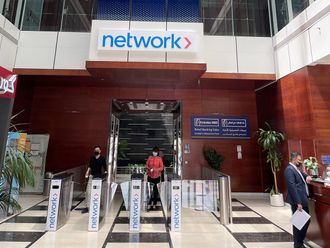New York: Citigroup Inc has been granted permission to return nearly $19 billion (Dh69.77 billion) of capital to shareholders after passing a tough regulatory test, a long-awaited victory for investors and Chief Executive Officer Michael Corbat.
Citigroup, the fourth-largest US bank by assets, on Wednesday said it plans to repurchase up to $15.6 billion of common stock over the next year and double its quarterly dividend to 32 cents per share, bringing total payouts to $18.9 billion.
The total payout is 54 per cent more than the Fed allowed last year and about 1.25 times the profits that analysts expect Citigroup to earn over the next four quarters. Analysts had expected Citigroup would win the right to increase payouts to roughly 1.12 per cent of annual profits.
Citigroup announced the details after the US Federal Reserve said the 34 biggest US banks had passed the second component of its annual stress test, and would therefore be able to put capital to work in ways other than fortifying their balance sheets.
This year’s test was an especially crucial rite of passage for Citi, whose shareholders have been keen to see management buy back shares that had been underperforming rivals.
Citigroup shares were up 2.3 per cent in after-hours trading at $66.68, compared with a stated net worth of $65.94 per share as of March 31.
“For some time, we have retained a significant amount of capital in excess of what is needed to prudently operate and invest in the firm,” Corbat said in a statement. Now, he said, the bank can begin “returning a higher level of that capital to our shareholders and improving Citi’s overall returns”. “This is another stepping stone in the recovery of Citigroup” from losses in the financial crisis, said Peter Nerby, a senior bank analyst at Moody’s Investors Service.
Citigroup took three bailout infusions from the government in 2008 and 2009.
While trimming Citigroup’s capital cushion favours stockholders, Nerby said, scrutiny from years of stress tests has left the bank stronger for bondholders.
Citigroup built excess capital through additions from net income and by shedding assets that required capital support.
Under Corbat, Citigroup has sold an assortment of ill-fitting assets and pulled out of about 20 consumer markets.
Yet the shrinking has discouraged some investors who doubt whether Citigroup’s remaining businesses will produce the higher profits needed to keep funding bigger payouts.
Bank analyst David Hendler of Viola Risk Advisors said that if Citigroup continues to shrink, shareholders will not be satisfied for more than another year or two of Citigroup paying out more capital than it earns.
“You have to have an operating profile that allows you to maintain your capital and do shareholder payouts,” he said.
“They don’t really have that. The visibility of growth engines at Citi is de minimis.”










